Smoke is usually an indicator of something going wrong within the alternator, and if left unaddressed, it can lead to further damage or even a breakdown. This always happens at an inconvenient time, not that there is a convenient time breakdown.
Before we get into why the alternator is smoking, the most common cause for an alternator smoking is one of its parts has overheated. The only solution is to replace the problematic alternator or the battery if that is causing the issue.
Causes of a Smoking Alternator
As indicated above, the cause of an alternator smoking is overheating, usually caused by overworking. Keep an eye out for the battery charging light because that confirms the alternator is problematic and needs replacing regardless of the problems below.
1. Bad bearing
The alternator has two sealed ball bearing units that turn the rotor inside the alternator, creating mechanical energy which is captured by the stator and converted to a usable voltage by the diode rectifier. You can read more about the operation of an alternator here.
The most common problem is the bearing inside the alternator runs dry. If the bearing runs dry, the temperature rises and melts the surrounding casing causing the smoking. Eventually, the bearing implodes, and smoking will be followed by rumbling or squeaking noises and the failed operation of the alternator. There’s not much you can do to stop this, as the bearing is a sealed unit; it’s just one of those things that happen. Alternators can be rebuilt, but the cost implications usually mean it’s cheaper to replace.
The other issue that can happen is the bearing can seize and jam in place, which will cause problems with the serpentine belt as the pulley in which the belt turns seizes.
2. Seized internals
Inside an alternator is a series of components, including the rotor, stator, bearings, and other mechanical parts, some of which spin with the engine revolutions.
When an alternator seizes up, regardless of which component failed, it can cause the rotor and stator to stop moving, leading to increased friction and heat. This increased heat can cause the insulation on the windings of the stator to break down, which can result in a short circuit, which will cause the alternator to overheat and start smoking.
3. Serpentine belt problem
The serpentine belt, also known as an auxiliary or alternator belt, doesn’t just turn the alternator but also the A/C pump. The belt is driven by the bottom crank pulley attached to the engine and loops around a series of pulleys and a tensioner which spins the belt faster as the revs rise.
A common issue with serpentine belts is the belt stretching, so you get that horrible screeching sound when revving a motor. Smoking usually occurs when either the tensioner has seized or one of the other pulleys has failed to turn; the belt is forced round and slips, the friction creates the belt to overheat, and smoke rises from the engine bay.
4. Wet alternator
Alternators run above 200 degrees Fahrenheit, so if water can spill onto the alternator, it will boil and steam. Usually, rainwater, although not too much of a problem in the short term, long term, an alternator constantly getting wet will stop producing electricity efficiently. Water evaporating is not quite the same as overheating and smoking, but something to be aware of.
5. Vents blocked
Modern alternators have their own internally mounted cooling fan and heat vents to allow the heat created when generating electricity to dissipate. If the cooling vents are blocked from dirt or debris, the heat inside the alternator will rise, and the components will start to smoke from overheating; you may also smell the burning. The other thing that can happen is the debris can burn away from the high heat, which will, of course, cause a smoking.
6. Loose connections
First, a loose connection can cause the alternator to work harder to generate power. When a connection is loose, it can create a resistance, which can cause the alternator to draw more current and generate more heat. This increased heat can lead to overheating of the alternator.
Second, a loose connection can cause the alternator to lose power, which can cause the voltage regulator to work harder to maintain a stable voltage output. This increased workload can cause the voltage regulator to generate more heat, contributing to overheating of the alternator and smoke coming from it.
7. Incorrect or bad battery
If the battery is not the correct size and has the incorrect capacity or type for the vehicle, the alternator has to overwork to keep the battery charged. This increased workload can cause the alternator to generate more heat and potentially start smoking.
If the battery is no good and can no longer hold a charge, the alternator is sent into overdrive trying to charge a faulty battery, in which case the alternator can overheat. This doesn’t very often cause the alternator to overheat to the point that it starts smoking, but it can occasionally occur.
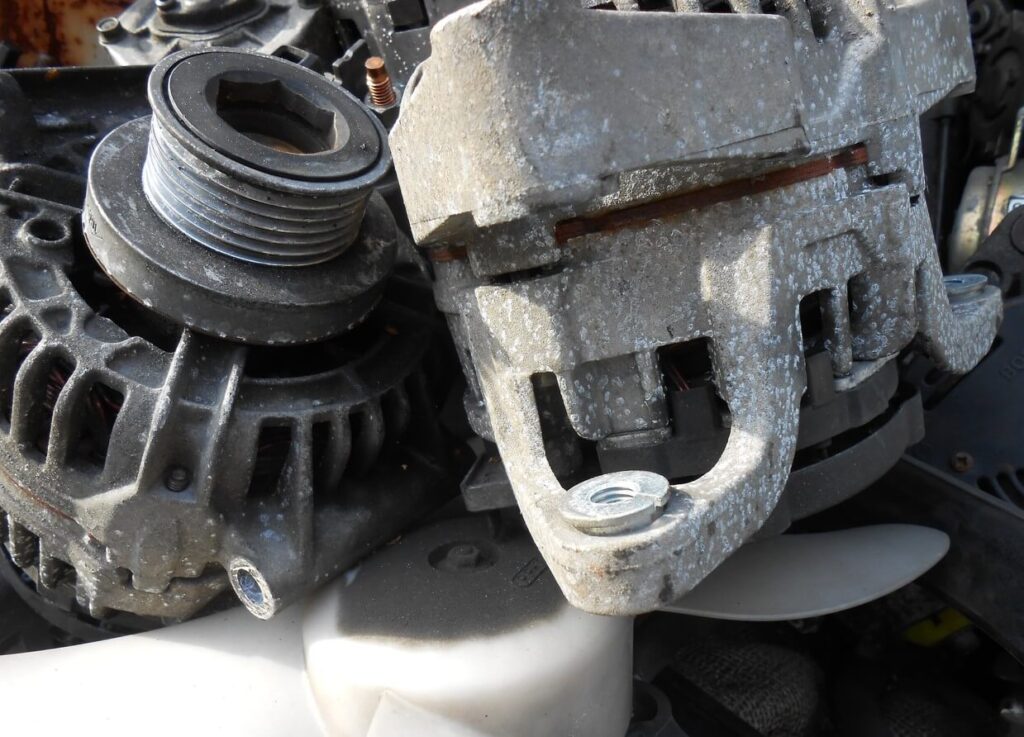
Why Is the Alternator Smoking While the Car Is Off?
The most likely cause of the alternator smoking when the car is off is the alternator has not properly cooled yet, especially within 30 minutes or so of turning the vehicle off. The cause is probably a dry and overheated bearing; it can take a long time for the bearing to cool and stop smoking.
Once the car has been switched off, the alternator is no longer turning and thus can’t overheat, so the alternator will not cause a problem if you come out a few hours later to smoke from the engine bay. If this is the case, you should take the car to a mechanic asap because the fault will likely be a severe electrical failure.
Can an Alternator Catch Fire?
All car electronics and alternators are similar to household electronics, which can catch fire without warning if there is a problem. Alternators have a form of protection in a specifically rated fuse that blows when the electrical load exceeds the rating of the components; this is when a fire could occur.
However, the bad news is even with fuses protecting the alternator from an electrical fire caused by the supply; the alternator can still catch fire for several reasons. If the bearing gets too hot, it will melt and catch alight. The other thing that can happen is the internals of the alternator can overheat and again catch fire.
Bottom Line
The reason an alternator is smoking is usually because it’s overheating. Many components within the alternator can seize or fail, causing the alternator to try and keep up with the car’s demand for electricity. Regardless of why your alternator is smoking, as detailed above, it will, unfortunately, need replacing.

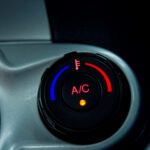

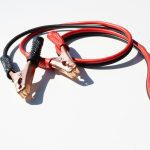
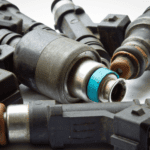
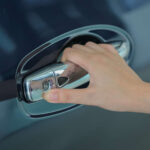
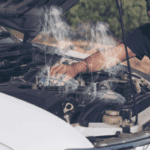


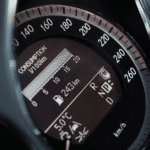
Last two weeks my 2008 Acura TL kept having smoke came from under the hood from time to time. Yesterday morning I opened the hood and found the smoke was from the alternator and even caught fire when I rev the engine up to 2000 RPM. I measured the voltage output on the battery terminals to be only 11.3 Volts with engine running. The voltage remained the same with engine turned off. The alternator is original OEM. The Acura OEM battery is only 2 years old. This tells me the alternator is bad and has not been charging the battery at all. There was a strange rattling sound from the alternator as well and telling me something was loose inside. I went ahead and replaced the alternator and battery both yesterday. The strange rattling sound is gone, too. I then drove the car for some 480 miles afterwards without any issue. Today I dissembled the dead original OEM alternator and found the bearing is good, the rectifier diodes are good to be 0.54 volts. I have no way to test the voltage regulator since it is out of the car. The brush compartment is full of soil and soaked with oil. The brush heads have been worn down to 1/3 of original height, and wear is uneven. I believe the fire was caused by the arc, and the arc was induced by the uneven brush heads while engine was running.
My question is what can cause the fire inside an alternator for sure. The mechanics at Advance Auto Parts told me there should be some kind of shorts in my wiring harness to the alternator when I purchased the new alternator and battery from them yesterday morning. I returned the dissembled alternator back to them today for a core refund. They inspected the dead alternator and confirmed everything is okay including the bearing except the brush heads are worn out. But they still insist there are shorts somewhere in my wiring harness.
So what is your take on this based on your 17 years experience as car mechanics? Thanks, Josh
Hi Josh, thanks for your comment. Based on the information you have provided there are three things that stick out:
1. Oil on the brushes
2. Brush heads worn down to 1/3 of there original height, this can lead to intermittent electrical contact and arcing.
3. Uneven wear on the brush heads can lead to uneven electrical contact with the rotor slip rings. Again this can cause arcs and sparks.
The combination of arcing from the brush heads, a loose internal component (the rattle) and the oil, is a bad combination that will result in a smoking alternator or a fire. However please bear in mind that a short in the wiring harness somewhere can effect the supply to the alternator, which could cause failure to a component inside. If they are adamant that the cause is a wiring short it would be best to check the wiring harness for a short. At least you would get closure if you found a short.
Sorry I can’t necessarily be of great help with this one, it’s tricky to advise on this without personally inspecting the alternator and the vehicle.
Tommy
carsneedcare.com